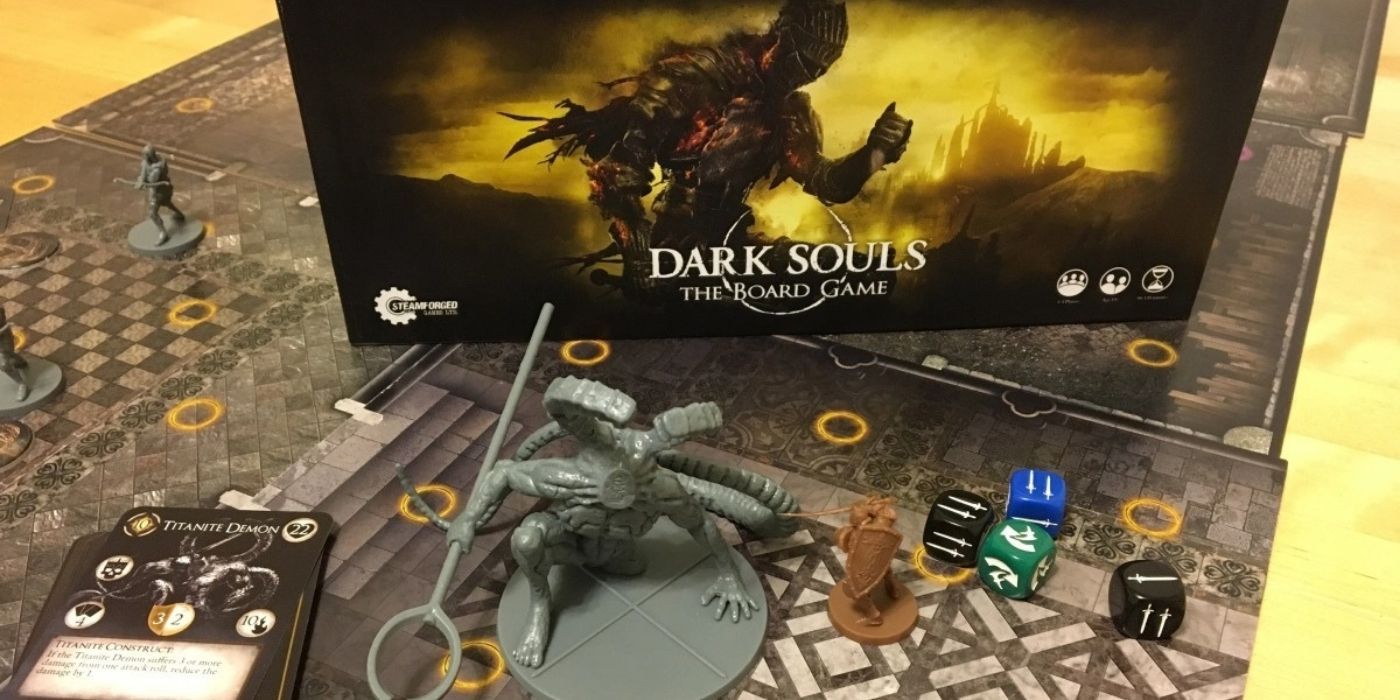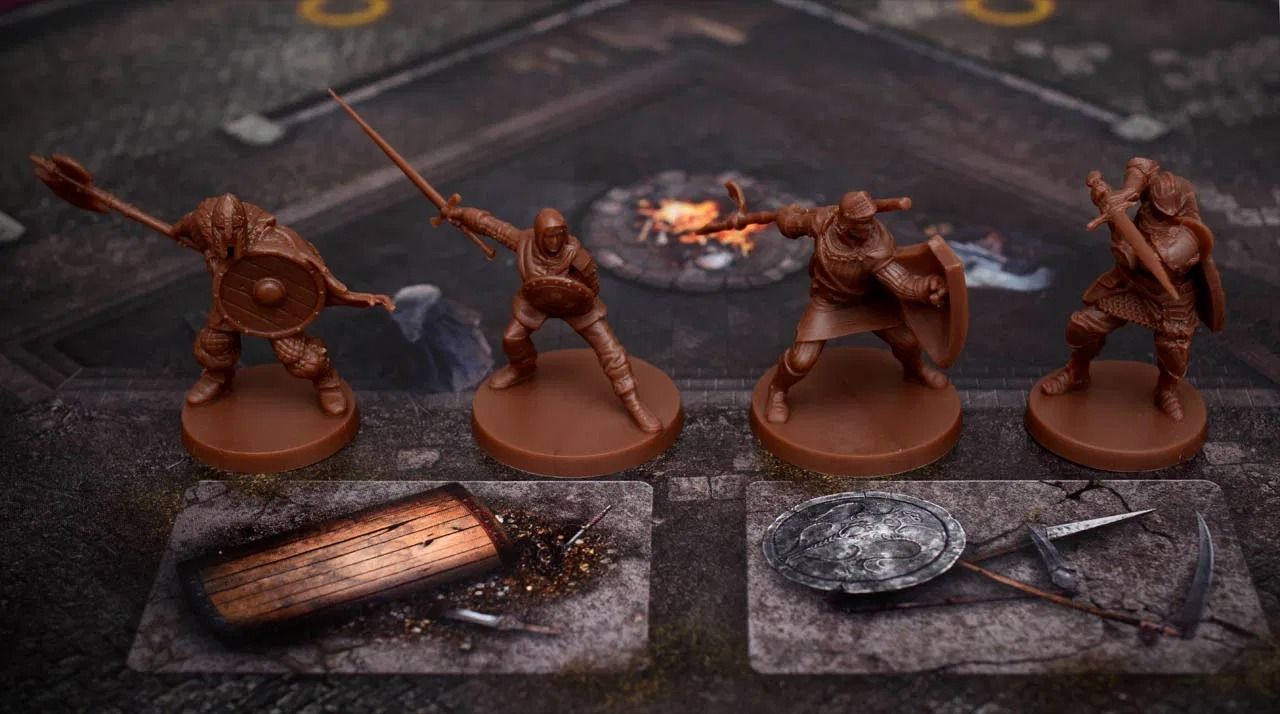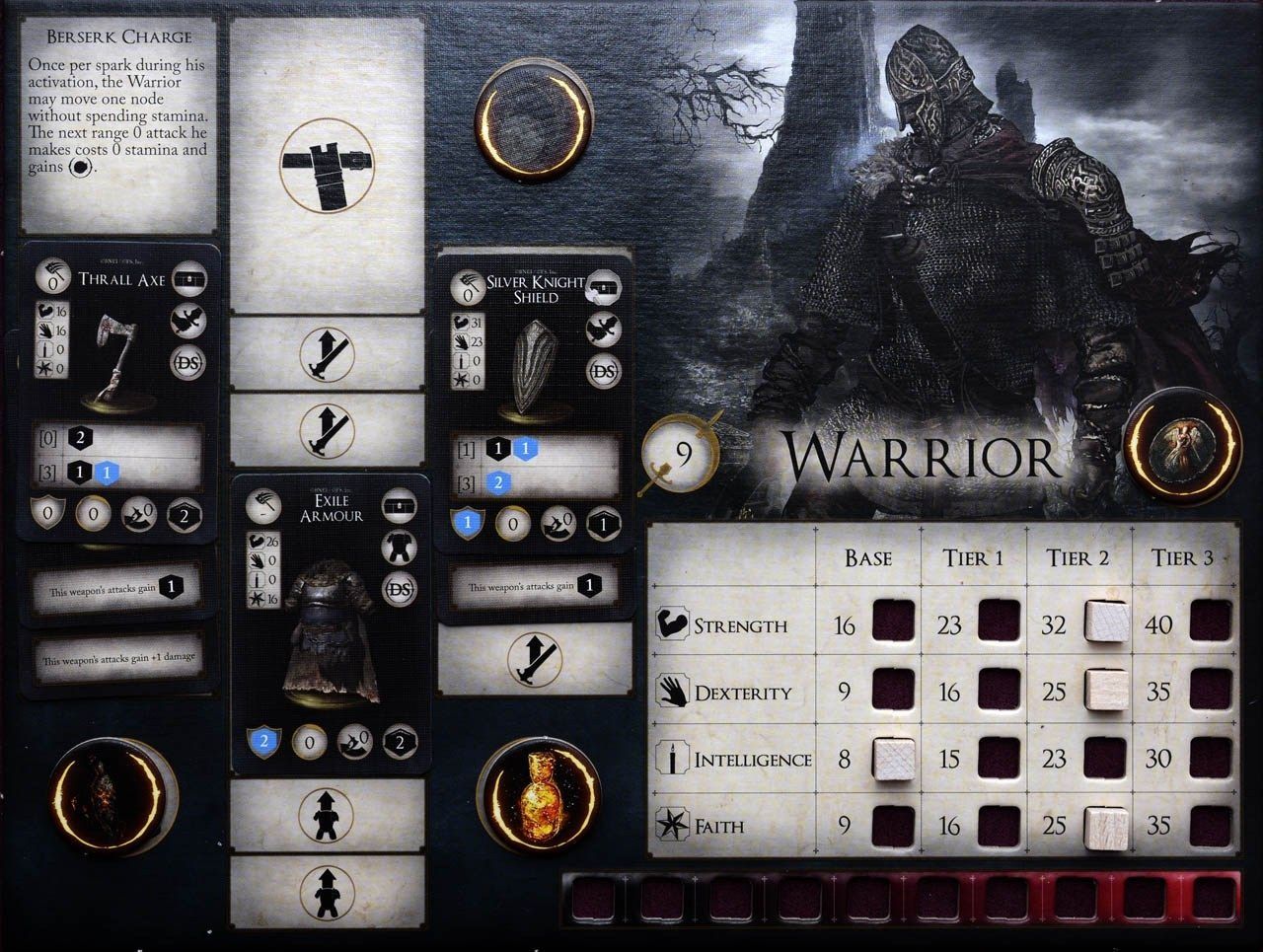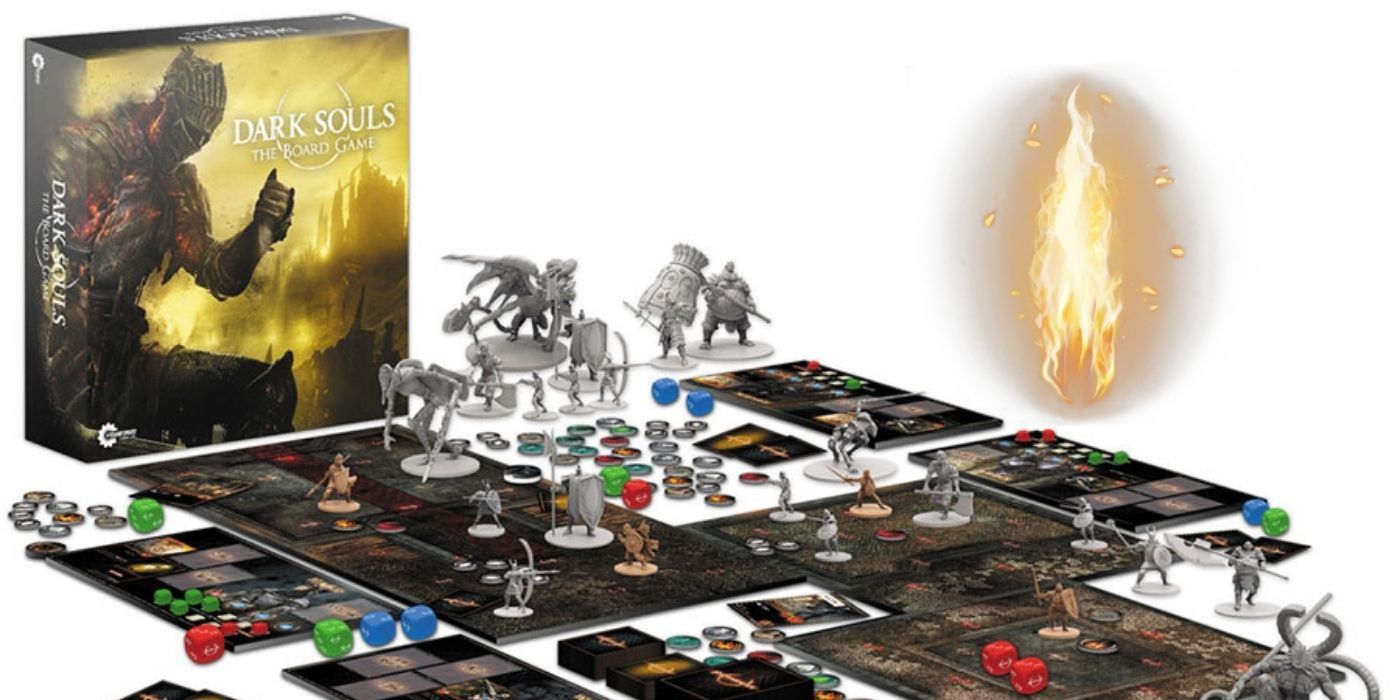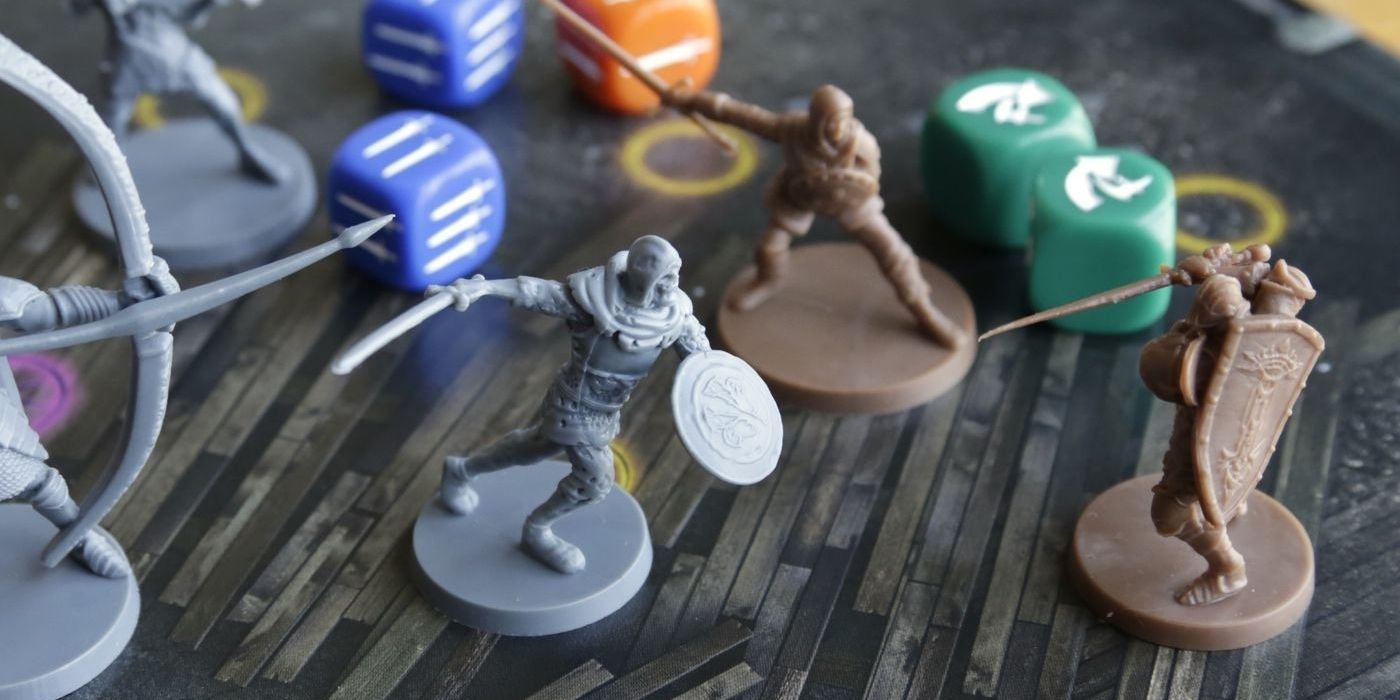Dark Souls: The Board Game manages to take one of the most infamous video game franchises and bring it straight to fans' tables, but this process isn't without a few hiccups. While it's amazing how Steamforged Games is able to emulate certain mechanics from the game in its tabletop adaptation, sometimes it does this a little too well, resulting in certain mechanics or features that don't really blend well with typical board game expectations. As a result, diehard fans of the game have created several house rules, changes, and even full alternate rulesets to make the game even better than it already is.
Unlike the original Dark Souls, players can change whatever they want about Dark Souls: The Board Game. Change too much and the game can become far too easy or way too difficult, but minor adjustments can really enhance how it feels to play the game. These house rules are commonly used by players of the community and have been tested fairly extensively, but should help to speed up the pace of gameplay. Though some enjoy it, there's a large portion of players that don't want to spend time grinding for souls in a board game, so these options will let that stage of gameplay be shortened or skipped outright.
Dark Souls: The Board Game - 16 Starting Souls
The first few encounters in Dark Souls: The Board Game are often the slowest, as players are really underequipped for even level 1 encounters. This rule allows parties to start the game with 16 souls before venturing into the dungeon, letting them level up and buy some equipment ahead of time. There's actually already a precedent for this as well in the rule book, as it states that the player should start with 16 souls if they are in a solo game, this just uses that rule regardless of how many players there are.
The pros of using this house rule is that players will be able to start off a little bit stronger. Since the early stages of a level are usually spent grinding encounters for souls anyway, this works well to alleviate that. On the other hand, the challenge of fighting standard hollows with just starting gear is a lot of fun for some, and this would negate that to a degree. What's more, it has varying effectiveness depending on how many players are in the party, as 16 souls doesn't go very far for a group of four.
Dark Souls: The Board Game - Separate Treasure Decks
One of the biggest differences between Dark Souls: The Board Game and its video game inspiration is randomness. In the video game, players can know exactly where to get a specific piece of gear by looking it up, but in the board game it's all just the luck of the draw. To get around this, players can use a house rule that reworks the way buying treasure from Andre the Blacksmith works. Instead of stacking all the treasure cards into one deck, players can separate the deck into four stacks, with one containing weapons/shields, armor, spells, and upgrade materials.
The pros to this are obvious, as it will be a lot easier to get things that the player needs. It can be frustrating spending a ton of time grinding souls only to draw armor when all the players already have great armor. As a downside, this will require a bit of extra setup time and is an obvious way to make the game easier, as characters will get more powerful more quickly. Even so, this small change might make spending souls a lot more exciting and rewarding.
Dark Souls: The Board Game - Double Souls/Half Sparks
The "Double Souls/Half Sparks" house rule is easily one of the most popular house rule, likely because it shortens time spent grinding while still attempting to maintain the balance of the game. As the name implies, players will earn double the souls from clearing an encounter (four per player instead of two), but their maximum sparks on the bonfire is cut in half (round down). Since the party will have less sparks, they won't be able to grind as much, but it should be offset by doubling the amount of souls the player gets.
This is one of the most balanced ways to cut down on grinding time, and its advantages are obvious. Players will be able to get gear and level up their characters at twice the normal rate, but it theoretically shouldn't affect the total amount of souls they earn throughout the game. That said, it does have some cons involved with using it as well, since players will grow twice as fast during each spark, making each spark easier. Finally, in a four player game, this leaves the party with only one spark to spend, which some consider to be too harsh since it only allows one mistake against one of Dark Souls' infamously difficult bosses.
Dark Souls: The Board Game - Farming Rooms
One final way that players can spend more time fighting massive bosses and less time grinding souls is to implement a farming mechanic. Essentially, this house rule allows players to completely skip a room and gain all the rewards inside it as long as they have cleared it before without spending any resources. This means that if the room is beaten the first time without characters using their Heroic Action, Luck Token, or Estus Flask, they don't have to play through the encounter again.
This works great during standard play, and will dramatically shorten games since players won't be setting up pieces and running through an easy encounter for the sake of doing it, but it has several flaws that must be watched. For starters, players can easily abuse this in campaign mode since sparks can be purchased for the price of clearing one room, meaning it would be possible to simply auto-farm the entire treasure deck in one moment. Beyond this, it should also be up to player discretion whether or not a room deserves farming status or not, as players shouldn't be able to farm a room they just barely cleared.
Dark Souls: The Board Game is available now.

